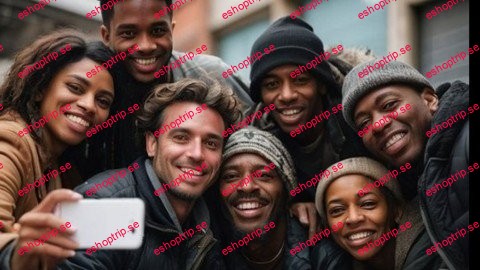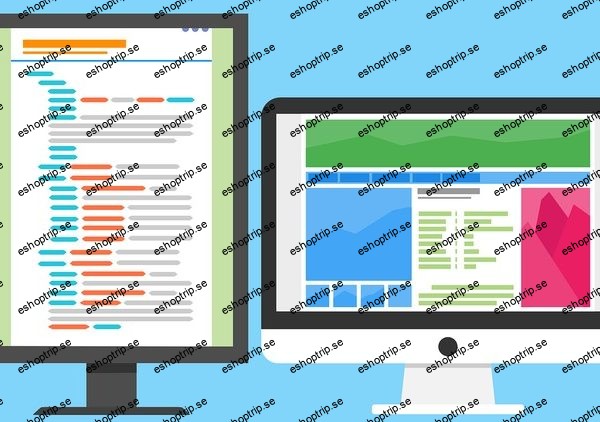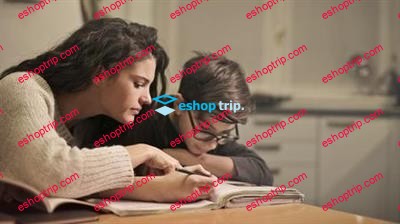Published 9/2024
MP4 | Video: h264, 1920×1080 | Audio: AAC, 44.1 KHz
Language: English | Size: 708 MB | Duration: 0h 49m
Crafting Impactful Erasmus+ Projects: Inclusivity, Sustainability, and European Values at the Core
What you’ll learn
Integrate EU Values: Understand and apply EU values in Erasmus+ projects, promoting active and global citizenship.
Design Sustainable Projects: Learn to create Erasmus+ projects with sustainable practices for long-term impact.
Implement Inclusive Design: Develop skills to design inclusive, accessible Erasmus+ projects, especially in KA210 partnerships.
Enhance Project Impact: Ensure projects are impactful and accessible, aligning with EU values and diverse needs.
Requirements
No background experience is required
Description
Are you ready to design Erasmus+ or other inernational also national, local projects that not only meet the high standards of the European Union but also make a meaningful impact on society? This course, Inclusive, Sustainable Erasmus+ Projects with EU Values, is your essential guide to creating projects that are inclusive, sustainable, and deeply aligned with EU values.In this course, you’ll embark on a transformative journey to understand how to craft Erasmus+ projects that embody the principles of inclusivity and sustainability while promoting core European values. The course begins with a comprehensive introduction to project design, offering insights on how to create Erasmus+ proposals that are not only innovative but also inclusive and sustainable. You’ll learn how to align your project goals with the broader objectives of the EU, ensuring that your proposal stands out in the competitive Erasmus+ selection process.As you progress, the course delves into the integration of EU values into your Erasmus+ projects. You’ll explore active citizenship and global citizenship education, gaining the tools needed to cultivate world-minded individuals through your project. By focusing on the incorporation of these values, your project will not only meet EU criteria but also contribute to a more engaged and responsible European society.The course then shifts to sustainability, guiding you through the creation of Erasmus+ projects that prioritize green practices and long-term impact. You’ll discover how to enhance your KA210SCH project with environmentally friendly strategies, ensuring that your project contributes to a sustainable future.Finally, the course addresses the critical aspect of inclusivity. You’ll learn how to design projects that embrace diversity and accessibility, ensuring that all participants can fully engage and benefit from the project. By the end of this course, you’ll have the knowledge and skills to design Erasmus+ projects that are not only fundable but also make a lasting, positive impact on society.Join us in this course and start creating Erasmus+ projects that are inclusive, sustainable, and aligned with the values of the European Union. Whether you’re a seasoned project writer or new to Erasmus+, this course will empower you to make a difference through your work
Overview
Section 1: How To design Your Erasmus+ Project: Inclusive, Sustainable, and Aligned with EU
Lecture 1 Let’s Start
Section 2: How To Integrate EU Values into Your Erasmus+ Project
Lecture 2 What is Active Citizenship?
Lecture 3 Integrating Active Citizenship into Erasmus+ Projects
Lecture 4 Active-Citizenship-in-Education
Lecture 5 Examples of Active Citizenship in Erasmus+ Projects
Lecture 6 Challenges and Considerations
Lecture 7 Best Practices for Successful Implementation
Lecture 8 Active Citizenship in Education
Lecture 9 The Essence of Global Citizenship
Lecture 10 Implementing Global Cİtizenship Education in Erasmus+ Projects
Lecture 11 Integrating-EU-Values-into-Erasmus-Projects
Lecture 12 Understanding EU Values
Lecture 13 Incorporating Democracy in Projects
Lecture 14 Promoting Human Rights Awareness
Lecture 15 Fostering Equality and Non-Discrimination
Lecture 16 Celebrating Cultural Diversity
Lecture 17 Promoting Active Citizenship
Lecture 18 Environmental Sustainability and EU Green Deal
Lecture 19 The Importance of European Identity in Schools
Lecture 20 Promoting Intercultural Understanding and Diversity
Lecture 21 Integrating European Citizenship into Curriculum
Lecture 22 Fostering Active Participation and Civic Engagement
Lecture 23 Challenges and Barriers to Implementing European Citizenship
Lecture 24 Critical Thinking Skills and Civic Engagement
Lecture 25 Teaching Students’ Rights and Responsibilities through Erasmus+ Projects
Lecture 26 The Benefits of Cultural Heritage Education
Section 3: How To Integrate Sustainableity into Your Erasmus + Project
Lecture 27 Understanding Sustainability
Lecture 28 Non-Formal Education and Learning Responsibility
Lecture 29 Sustainable Logistics and Transportation
Lecture 30 Sustainable Accommodation Choices
Lecture 31 Sustainable Food Choices
Lecture 32 Sustainable Activities and Outdoor Learning
Lecture 33 Sustainable Materials and Resources
Lecture 34 Community Involvement and Long-lasting Impact
Lecture 35 Reflection and Continuous Improvement
Lecture 36 Eco-Friendly Educational Materials
Lecture 37 Energy Efficiency and Renewable Energy
Lecture 38 Sustainable Transportation Initiatives
Lecture 39 Waste Management and Recycling
Lecture 40 Nature-Friendly School Gardens
Lecture 41 Water Conservation Strategies
Lecture 42 Environmental Education and Awareness
Lecture 43 Green Technology Integration
Lecture 44 Sustainable Partnerships and Collaborations
Lecture 45 Eco-Friendly School Events and Celebrations
Lecture 46 Green Building and Infrastructure
Lecture 47 Biodiversity Promotion on School Grounds
Lecture 48 Sustainable Food Practices in Schools
Lecture 49 Green Skills Development
Lecture 50 Digital Sustainability Initiatives
Lecture 51 Community Outreach and Engagement
Lecture 52 Celebrating and Sharing Success
Section 4: How To Design Your Erasmus+ Project Inclusive
Lecture 53 Introduction to Inclusive Design
Lecture 54 Core Principles of Inclusive Design
Lecture 55 Diversity and Equality Principles
Lecture 56 Celebrating Cultural Differences
Lecture 57 Ensuring Accessibility
Lecture 58 Adopting a Participatory Approach
Lecture 59 Considering Learning Styles
Lecture 60 Inclusive Local Activities Design
Lecture 61 Inclusive Transnational Mobility Design
Lecture 62 Inclusive Web Platform Design
Lecture 63 Understanding Inclusive Design in Education
Lecture 64 Identifying Diverse Student Groups
Lecture 65 Promoting Diversity and Equality Principles
Lecture 66 Ensuring Physical Accessibility
Lecture 67 Enabling Information Access
Lecture 68 Adopting Participatory Approaches
Lecture 69 Developing Social Skills
Lecture 70 Promoting Sustainability in Inclusive Projects
Lecture 71 Comprehensive Evaluation Methods
Lecture 72 Strengthening Partnerships for Inclusivity
Lecture 73 Enhancing European Dimension in Inclusive Projects
Lecture 74 Innovative Approaches in Inclusive Education
Lecture 75 Addressing Language Barriers
Lecture 76 Supporting Students with Special Educational Needs
Lecture 77 Fostering Inclusive Social Interactions
Lecture 78 Ensuring Digital Accessibility
Lecture 79 Continuous Improvement and Future Directions
Teachers,Trainers,Academicians,Youth Workd,Project Writers,Adult Trainers,VET Trainers,Anyone who is Interested In Learning EU Values
Homepage










